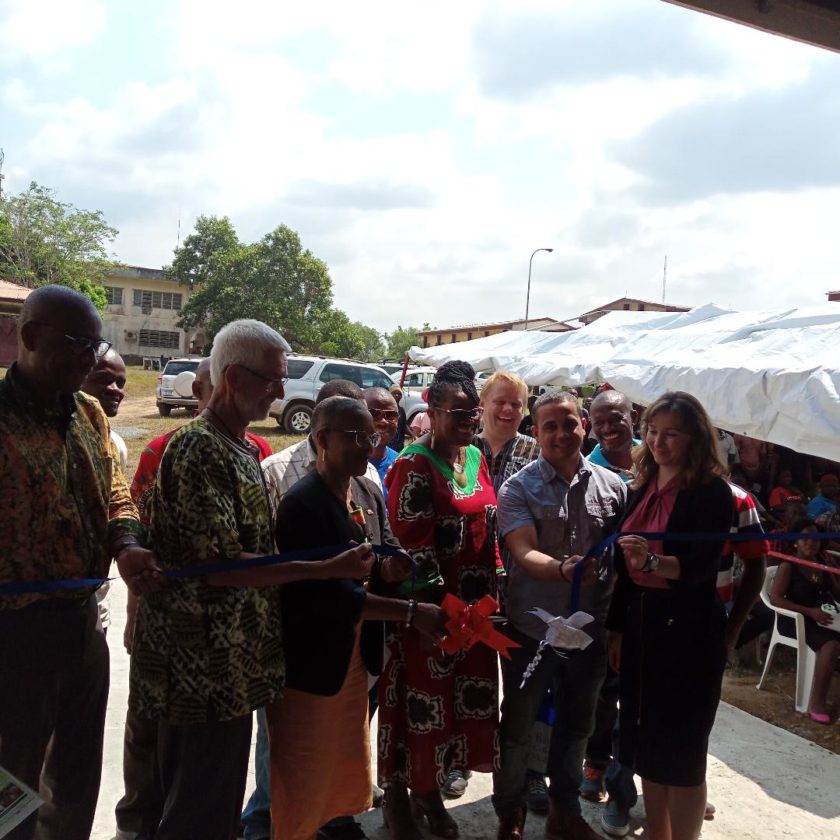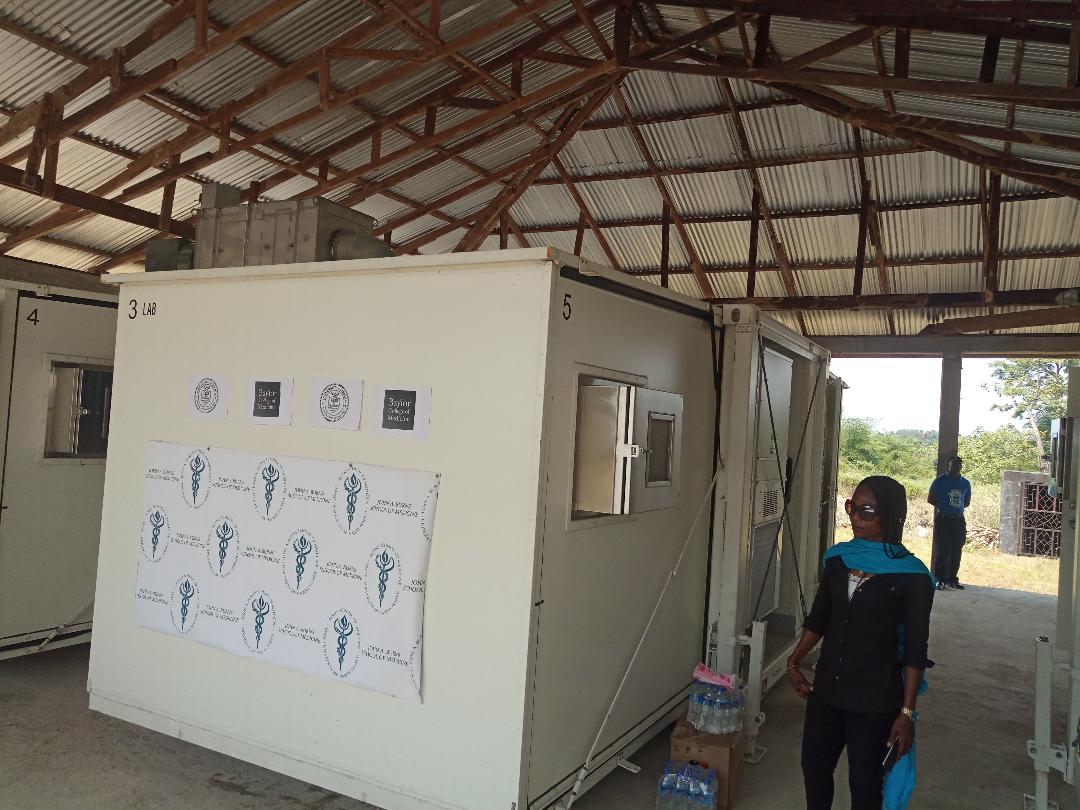-With a rapidly deployable capacity
By George Y. Sharpe
Days after the news of the discovery of Ebola Virus in a bat in the Forest of Nimba County, the University of Liberia has inaugurated a rapidly deployable diagnostic center at its Fendall Campus.
The Scientific research structure, which was inaugurated last Friday, January 25, 2019, comprises three mobile units, including a Pharmacy, Laboratory, and a Glove Box.
The materials were donated by the Paul Allen Family Foundation through the Baylor College of Medicine based in the United States.
This will enable the University to test specimens to detect viruses in a relatively short period of time.

The National Institute for Public Health of Liberia said the study leading to the discovery of the virus in the bat in Nimba was done between 2016 and 2018.
With this new center such studies can be concluded at the Fendall Campus of the University of Liberia.
Elena Petrova, Assistant Director on Technology Development, Baylor Global Health, at the Baylor College of Medicine said the mobile lab, which was assembled by the College, was designed to quickly respond to outbreaks such as Ebola.
She said it can also be used for scientific research given its sophistication.
“We are so happy to provide you this tool and you will see all the equipment and imagine all the capabilities which this laboratory will give you.” Dr. Elena Petrova told the University.
She disclosed that the facility will need the expertise of trained faculty to work with students to get it functional.
“We understand that facility is not everything, people should work here and they should be highly qualified and skilled people.”
Dr. Petrova promised continued collaboration aimed at giving the faculty and students hands-on skills so as to master what it requires to use the facility and respond to any kind of crisis.
The Assistant Director on Technology Development at the Baylor College expressed hope that the deplorable diagnostic center will be used for scientific research purposes.
“We do not wish to have a crisis, although this was built to rapidly respond to crises such as virus outbreak. We truly believe that no crisis will happen anymore, so this center will be used to conduct scientific research that will solve problems.” Petrova noted.
Meanwhile, University of Liberia President Ophelia Weeks expressed delight over the opening of the center on the campus, saying that it has “Anything you need” to do molecular biology research.
Dr. Weeks added that the center will go a long way in achieving the University’s vision to be among the top twenty Universities in West Africa.
She urged faculty and students to start to think about making the “Maximum” use of the mobile Laboratory.
The UL President outlined the importance of having the Lab with the state-of-the-art mobile equipment installed on the campus of the University of Liberia.
“I can’t appreciate this, I am sure many of you can, some more than others. As a researcher with more than thirty years of research experience, having such facility with the magnitude of these equipment is a huge development.”
She went on to narrate that the self-contained and mobile Lab will afford students at the University the opportunity to meet up with 21st. century learning.
Dr. Weeks said the center will be recognized as a sentinel project as it has arrived at the beginning of the University’s sentinel convocation year.
“We have existed for a hundred-and-fifty-five years, but we will be graduating students for the hundredth time this year for various reasons, and this Lab will be recognized as part of this achievement.” Dr. Weeks said.
She hoped that the opening of the lab will put the University on a trajectory that will take it further in the field of science.
“We will have people who will see the value of this center and will be able to better write proposals, grants to bring funds to the University so that we can continue to do what these labs will allow us to do.” Dr. Weeks concluded.

